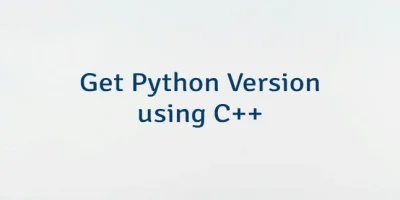C++ applications often rely on exception handling for error reporting and recovery. However, some environments disable exceptions to reduce binary size or improve performance - embedded systems being a common example. In such cases, it may be useful for a program to detect whether exception support is active. This enables developers to switch to alternate error-handling paths. This tutorial explains how to check if exceptions are enabled using C++.
We can detect exceptions using compiler-defined macros. Most compilers expose one of the following macros:
__cpp_exceptions- a standard feature macro defined when C++ exceptions are enabled. Supported by GCC and Clang._CPPUNWIND- defined only by MSVC when exception handling and stack unwinding are available.
Because of this difference, we can implement a small compatibility layer that functions across compilers:
#include <iostream>
#if defined(__cpp_exceptions) || defined(_CPPUNWIND)
#define EXCEPTIONS_ENABLED 1
#else
#define EXCEPTIONS_ENABLED 0
#endif
int main() {
if (EXCEPTIONS_ENABLED) {
std::cout << "Exceptions enabled" << std::endl;
} else {
std::cout << "Exceptions not enabled" << std::endl;
}
return 0;
}To verify the macro logic, compile the program without exceptions support by passing the appropriate option to the compiler:
g++ -fno-exceptions main.cpp -o testRun the binary:
./testThe executable will print whether exception support is available. This approach is especially helpful when maintaining code intended to run in both exception-enabled and exception-disabled environments.




Leave a Comment
Cancel reply